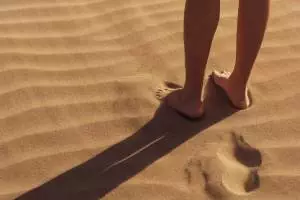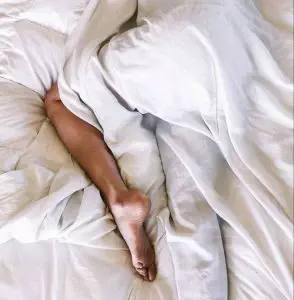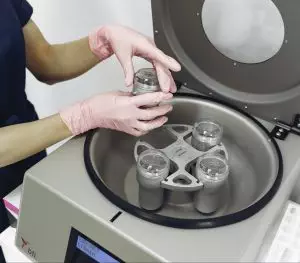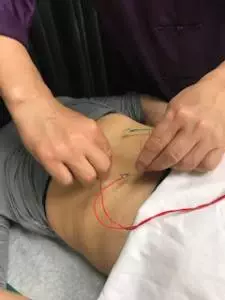-
 Art of Wellness Acupuncture & Traditional Chinese Medicine (TCM)11704 Wilshire Blvd, Suite 295, Los Angeles, CA, 90025
Art of Wellness Acupuncture & Traditional Chinese Medicine (TCM)11704 Wilshire Blvd, Suite 295, Los Angeles, CA, 90025
myartofwellness@gmail.com310-451-5522 Office Hours
MonClosedTue7:30 am --4 pmWed7:30 am --4 pmThu7:30 am -- 4 pmFri7:30 am -- 4 pmSat7:30 am -- 4 pmSunClosedOur office opens from Tuesdays to Saturdays 7:30 am to 4 pm, will be closed on Memorial day, Independent day, Labor day, Thanksgiving day, Christmas and New year.
-
Recent Posts
- Chinese New Year 2026: Year of the Horse
- Acupuncture and TCM Treatment for Perimenopause Symptoms
- How to Treat Insulin Resistance With Acupuncture and TCM
- How to Treat Metabolic Syndrome With Acupuncture and TCM
- How to Treat Syncope With Acupuncture and TCM
- How to Treat Thoracic Outlet Syndrome With Acupuncture and TCM
- How to Treat Dupuytren’s Contracture With Acupuncture and TCM
- How to Treat Nutcracker Syndrome With Acupuncture and TCM
- How to Treat Rosacea With Acupuncture and TCM
- How to Treat Perioral Dermatitis With Acupuncture and TCM
- Lymphatic Drainage With Acupuncture and TCM
- How to Treat Turf Toe With Acupuncture
- How to Treat Nerve Pain With Acupuncture and TCM
- How to Treat Watery Eyes With Acupuncture and TCM
- How to Treat Ovarian Cysts With Acupuncture and TCM
- How to Treat Dystonia With Acupuncture and TCM
- Sign up to receive news and updates and get my free report:“The Top 10 Reasons to Try Acupuncture”

November 2025 M T W T F S S 1 2 3 4 5 6 7 8 9 10 11 12 13 14 15 16 17 18 19 20 21 22 23 24 25 26 27 28 29 30
Pain
How To Help Dependence on Hydrocodone and Other Opioid Pain Medication With Acupuncture and TCM
By Qineng Tan, L.Ac., Ph.D. & Xiaomei Cai, L.Ac., Ph.D.
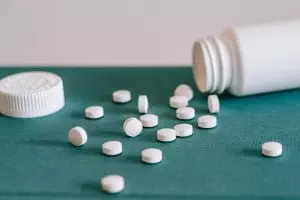
Many people are prescribed strong pain medication when they are in need of pain relief. Opioid drugs may help relieve pain, but they can also create a physical dependence as a person develops a tolerance for the painkillers. Acupuncture and TCM offer an alternative to opiate drugs and opioids like Codeine and Vicodin for treating pain, and a way to help treat both opioid dependence and addiction.
We often hear in the news that the U.S. is facing an “opioid epidemic.” Recent statistics suggest that over ten million Americans may have an opioid use disorder. CDC data showed that over 75,000 people died from opioid overdoses in 2021.
Some of the most commonly used pain medications include:
- Oxycodone (Oxycontin)
- Hydrocodone (Vicodin)
- Oxymorphone
- Morphine
- Methadone
- Fentanyl
- Codeine
- Tramadol
- Buprenorphine
Opioid medications are also known as “narcotics.” “Opiate” drugs are derived naturally from the poppy plant. These include: opium, codeine, and heroin. “Opioids” are synthetically produced in a lab. These include: oxycodone and fentanyl.
People are prescribed opioids or opiates to help them deal with severe pain, but the medications themselves can then become the primary cause of suffering in their lives. Roughly a quarter of people who are prescribed opioid pain medications end up misusing them.
Opioid misuse can mean different things, like: taking more than the prescribed dosage, using someone else’s medication, or continuing to take the medication even though it is having a negative impact on your health and life.
Dependence on opioids is different from addiction, and it is possible to experience drug dependence with or without also having a substance use disorder.
When a person becomes dependent on a medication, it means that they require a certain dose of that substance in order to avoid withdrawal symptoms. This is why these medications are closely monitored by the prescribing medical doctor, so that the dosage is carefully controlled. A person may need to be slowly weaned off the medications when they are no longer necessary, so as to avoid withdrawal.
It is also possible for a person to develop an addiction to opioids, as they stimulate the release of endorphins, which help to block pain signals and produce positive feelings. When this process is repeated over and over, the body starts producing less endorphins naturally, and a higher dosage of the opioid medication is required to produce the same effect; this is what we mean by “tolerance” to the drug.
Addiction to opioids—or an opioid use disorder—is more likely the longer a person takes them—for example, for a chronic pain condition. Other factors, like depression or anxiety, high levels of stress at work or home, and use of other substances like tobacco and alcohol, can also play a role in addiction risk.
It can be difficult, even for doctors, to distinguish between physical dependence and addiction. Addiction is usually defined by “abuse” or “misuse.” When a person feels that they cannot live without the medication, though, there is clearly a problem.
Acupuncture and TCM may play an important role in helping both individuals, and society as a whole, overcome dependence on opioid pain medications because it addresses the problem in several ways.
Top 10 Reasons Acupuncture Is a Good Alternative to Opioids for Pain Relief
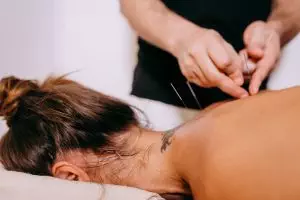
Acupuncture has a natural analgesic effect and can help relieve severe pain and chronic pain, without negative side effects.
- Acupuncture and other TCM modalities are an effective alternative for pain relief.
- Acupuncture can be used to treat both acute pain and chronic pain.
- Acupuncture can help reduce the need for opioid-like medications after surgeries, by helping relieve postoperative pain.
- Acupuncture and herbs can help postoperative wounds heal more quickly.
- Acupuncture can help cancer patients by providing pain relief and additionally helping to relieve nausea and mitigating other side effects of cancer treatment.
- Acupuncture provides pain relief without negative side effects.
- Acupuncture can help individuals who are trying to stop taking opiates avoid withdrawal symptoms.
- Acupuncture can help alleviate cravings for addictive substances.
- Acupuncture helps to effect the release of endorphins naturally, which provides the same good feelings as drugs initially do.
- Acupuncture can be a more cost effective way to treat pain and addiction than other methods.
Treatment for Opioid Dependence
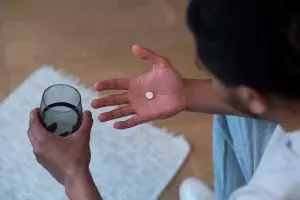
Methadone Maintenance treatment (MMT) is widely used to treat opioid addiction or dependence. This method involves replacing the opioid drug with methadone, which is a synthetic opioid, so it acts on the same centers of the brain, which helps to reduce cravings and withdrawal symptoms. This can help people wean themselves off of pain medications or heroin. However, there can be side effects, and MMT does not help everyone stop using or misusing opiates or prescription pain medications.
Long-term use of opioids can be detrimental to a person’s overall health, both mentally and physically. Hydrocodone side effects and oxycodone side effects can include: drowsiness, dizziness, nausea, vomiting, constipation, irregular heartbeat, and increased risk of respiratory problems for people with asthma or COPDs like emphysema or chronic bronchitis.
Mental health issues and opioid misuse often go together. People who suffer from depression or anxiety are much more likely to use opioids to treat pain and then become emotionally dependent on them.
Overall, evidence suggests that pharmacological methods for treating opioid misuse are not very successful. TCM and acupuncture offer an alternative treatment for opioid dependence.
Can Acupuncture Help Relieve Pain Better Than Opioids?
While there is still much to be done in the way of scientific research to demonstrate exactly how acupuncture is able to effect changes in the body and help relieve pain, there is ample enough evidence to convince the medical community that acupuncture does, indeed, have a significant analgesic effect. For two decades now, the WHO has recommended acupuncture and TCM for many different pain conditions, including:
- neck pain
- back pain
- low back pain
- Sciatica, hip pain
- postoperative pain
- headaches and migraines
- shoulder pain
- heel pain, plantar fasciitis
- TMJ pain
- Neuropathy pain
Acupuncture may work so well to relieve pain because it appears to have an effect on the central nervous system and opioid peptide neurotransmitters, including endorphins. This means that acupuncture works on the opioid receptors in the brain.
One study of patients who were in methadone treatment for opioid dependence found that people who received acupuncture were able to reduce the amount of methadone they needed.
A study on patients who had lumbar spine surgery to help severe back pain showed that acupuncture worked well as a postoperative analgesic.
Acupuncture Near Me for Pain Management and Opioid Dependence in Los Angeles
It is absolutely necessary for so many people to find pain relief when they have an acute condition, or a chronic pain condition, or are in treatment for cancer or other serious illness. Serious pain causes mental anguish as well as physical limitations. Acupuncture and TCM offer an alternative treatment for pain management that helps not only to block pain, but also to relieve stress and anxiety. At Art of Wellness, we have over 30 years of experience helping people to manage pain safely and effectively.
*This article is for education from the perspective of Traditional Chinese Medicine only. The education provided by this article is not approved by FDA to diagnose, prevent, treat and cure human diseases. It should not stop you from consulting with your physician for your medical conditions. Traditional Chinese Medicine is based on Qi, which is an invisible force that usually cannot be observed by modern science. Because science focuses on testing ideas about the natural world with evidence obtained through observation, these aspects of acupuncture can’t be studied by science. Therefore acupuncture and Chinese herbs are often not supported by double-blind, randomized trials, and they are considered alternative medicine therapies in the United States.
How to Treat Occipital Neuralgia With Acupuncture and TCM
By Qineng Tan, L.Ac., Ph.D. & Xiaomei Cai, L.Ac., Ph.D.
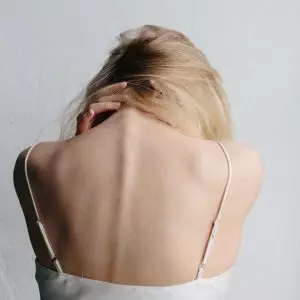
Throbbing headache and back of neck pain? Occipital Neuralgia, sometimes called “occipital migraine,” is a kind of chronic headache that causes stabbing neck pain and headache back of head. Acupuncture and TCM offer a way to help ease occipital nerve pain.
Occipital headache causes are usually due to compression of the occipital nerves, which start at the top of the spine where the neck is joined to the head and then run up into the scalp. A pinched nerve in the neck area, or tight muscles in the neck can lead to occipital pain, like a headache at base of skull.
Neck pain and back of head pain from an occipital migraine is often described as feeling like an electric shock or “zap,” or a sharp, shooting pain in the back of the head. The sensation may come on suddenly and last for only a few seconds, or it can go on throbbing for hours.
Occipital neuralgia pain is similar to that of Trigeminal Neuralgia, in which the intense nerve pain is on one side of the face, rather than the back part of the head. Occipital pain can also resemble that of chronic migraines and other kinds of headache disorders.
Occipital Neuralgia pain areas can include:
- Pain starts in the back of the neck and spreads upwards
- Back of head pain, behind the ears
- Pain on one side of the head
- Scalp pain, scalp tender to the touch
- Pain in the forehead
- Pain behind the eyes
- Eyes are sensitive to light
Occipital neuralgia pain can make the scalp feel so sensitive that even shampooing your hair or resting your head on a pillow feels unbearable. It can also feel like a burning sensation, or simply an aching neck.
Acupuncture can be used as an alternative or adjunct therapy for occipital neuralgia to bring headache and neck pain relief.
What Causes Occipital Neuralgia?
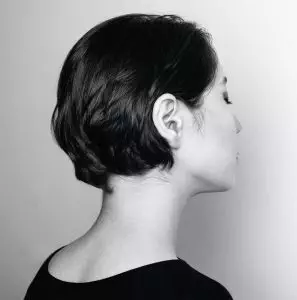
Occipital neuralgia occurs when the occipital nerves in the back of the head and neck are irritated or injured. There can be many different kinds of factors that trigger occipital neuralgia, such as:
- Pinched nerve in the neck
- Tension or tight muscles in the neck cause compression
- Compression of the nerves due to osteoarthritis in the spine, degenerative disc disease, or a herniated disk
- Trauma to the back of the head or the neck
- Tumor or other type of lesion in neck compresses the nerves
- Gout
- Diabetes
- Vasculitis (inflamed blood vessels)
Holding the head and neck in a position where it is tilted forward and down, such as when reading or looking at a screen for long periods of time can be associated with occipital neuralgia.
Often, though, the exact cause of the occipital pain in the head and neck is not discovered.
There is no clear test used to diagnose occipital neuralgia. The symptoms of occipital nerve pain are similar to other types of migraine headaches, and it is possible for a person to have both migraines and occipital neuralgia, so it can be challenging for doctors to determine exactly what is going on.
Conventional Treatment for Occipital Neuralgia
One of the ways that medical doctors will try to confirm a diagnosis of Occipital Neuralgia is by injecting a combination of anesthetic and steroids (occipital nerve block) into the affected area, to see if it deadens the pain. Botox injections can also be used to produce this effect. The hope is that the irritated nerve will heal over time.
If neck tension seems to be the issue, muscle relaxants may be prescribed. Massage therapy can sometimes be helpful in these cases.
Occipital neuralgia treatment at home might involve alternating ice packs and heating pads to help relieve pain at the back of the neck. Exercises like yoga may also be helpful for relieving neck tension that triggers the nerve pain.
If none of these treatments provides relief, then surgical options might include occipital nerve stimulation, in which electrodes are implanted to block nerve signals.
Acupuncture and TCM can be sought as an alternative way to deal with occipital neuralgia, and many other types of nerve pain.
Can Acupuncture Help Occipital Neuralgia?

From the TCM point of view, pain conditions that come and go, or cause periodic pain and stiffness, fall under a category called “Bi Syndromes.” “Bi” means “obstruction.” Bi Syndromes occur when an external pathogenic force like wind, cold, or dampness gets into an area of the body and causes blockages in the flow of Qi. Then, the muscles and joints may be tender, swollen, or sore, or numb and tingling, or have limited range of movement. Most types of arthritis, for example, are Bi Syndromes, according to TCM theory.
Occipital neuralgia is considered a Bi Syndrome, where tightness in the neck and base of the skull causes the stabbing nerve pain to flare up. The goals of acupuncture treatment for occipital headache and neck pain are to reduce tension, stress, and inflammation, to clear blockages in the Qi at the organ system level, and to provide natural analgesic relief from nerve pain signals.
One case study of a patient who had been suffering from occipital headaches for over a year found that her pain resolved after five acupuncture treatments.
A systematic review of evidence related to TCM treatment for occipital neuralgia in China showed that acupuncture was effective both as an alternative to medical treatment, and as an adjunct to medicine.
Acupuncture Near Me for Occipital Neuralgia in Los Angeles
At Art of Wellness Acupuncture near Santa Monica and Brentwood, we have over 30 years of experience helping people heal from all kinds of neurological conditions and nerve pain. Conditions related to nerve compression, such as Carpal Tunnel syndrome (wrist pain), Morton’s Neuroma (ball of foot pain), Sciatica (hip pain), Plantar Fasciitis (heel pain), and even dental pain (toothaches) can all be relieved with acupuncture and TCM treatment. If you or someone you know is suffering with recurring headaches, migraines, or neck pain, please consider giving acupuncture a try.
*This article is for education from the perspective of Traditional Chinese Medicine only. The education provided by this article is not approved by FDA to diagnose, prevent, treat and cure human diseases. It should not stop you from consulting with your physician for your medical conditions. Traditional Chinese Medicine is based on Qi, which is an invisible force that usually cannot be observed by modern science. Because science focuses on testing ideas about the natural world with evidence obtained through observation, these aspects of acupuncture can’t be studied by science. Therefore acupuncture and Chinese herbs are often not supported by double-blind, randomized trials, and they are considered alternative medicine therapies in the United States.
How to Treat Morton’s Neuroma With Acupuncture and TCM
By Qineng Tan, L.Ac., Ph.D. & Xiaomei Cai, L.Ac., Ph.D.
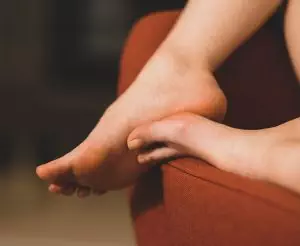
Do you feel like there is a pebble in your shoe all the time? Burning, tingling ball of foot pain? Tenderness between the 3rd and 4th toes? These could be symptoms of Morton’s Neuroma, a condition in which inflammation and swelling around a nerve in the ball of the foot causes toe pain and numbness. Acupuncture and Chinese medicine can help relieve Morton’s Neuroma foot pain.
Morton’s Neuroma is a problem related to swelling and thickening of tissue around a nerve in the foot. This nerve runs under the ligaments that connect the toe bones to the bones of the foot. A neuroma is considered to be a kind of benign tumor or growth and is usually not large enough to feel as an actual lump on the bottom of the foot.
Pain in the forefoot, or ball of foot pain, can be a sign of Morton’s Neuroma, or it could be a symptom of one of several other conditions, including:
- Metatarsalgia – a general term for pain and inflammation in the ball of foot, around the metatarsals. Pain symptoms can be similar to those of Morton’s Neuroma
- Capsulitis – irritation of the capsular ligaments in the foot can cause pain in the ball of the foot that comes and goes
- Gout – a type of arthritis in the foot or toes, caused by a buildup of uric acid
- Rheumatoid Arthritis (RA) – an autoimmune condition that causes arthritic pain that usually begins in the extremities
- Bunion pain – a bony bump that develops on the outside of the big toe joint
- Edema – swelling caused by fluid trapped in the tissues of the foot
- Arthritis – a general term for joint pain, which can affect the toes and feet
- Fractured bones in foot
- Bursitis – bursas are small sacs that act as cushioning for joints; there are bursae around the metatarsals that can become inflamed, causing ball of foot pain
- Tarsal Tunnel Syndrome – a condition where the tibial nerve is compressed in the tarsal tunnel area of the ankle, causing pain and tingling in the foot
- Radiculopathy – compression of a nerve in the lower back can cause pain in the foot, similar to sciatica
- Hammertoe – when one of the toes becomes bent, usually due to pinching shoes, and the muscles and ligaments can’t straighten it, causing swelling and pain
- Diabetes – foot pain and numbness (diabetic neuropathy) can happen due to diabetes.
It is possible for a person to have one of the conditions listed above, and also have a Morton’s Neuroma; sometimes another foot problem can contribute to the development of a neuroma.
Morton’s Neuroma Symptoms
The signs of a Morton’s Neuroma include:
- Ball of foot pain, especially when you put weight on in
- Toe pain or pain between the toes
- Numbness or tingling in the ball of the foot, “pins and needles” sensation
- Swelling between toes or in the ball of the foot
- Pain is better with rest, staying off of your foot
People often describe the sensation as feeling like there’s a pebble in your shoe or a wrinkle in your sock that is irritating, particularly in the area between the third and fourth toes.
Typically, the symptoms of neuroma begin to be noticeable when you are either engaging in an activity that aggravates the nerve, like running or playing a high-impact sport like tennis, or wearing shoes that force the ball of your foot to take extra impact. The pain and tingling may get better when you finish, take off your shoes, and rub your foot.
Over time, though, as the neuroma gets bigger, the pain may get worse and more persistent. If Morton’s Neuroma is left untreated, it can cause permanent damage to the nerve.
What Causes Morton’s Neuroma?
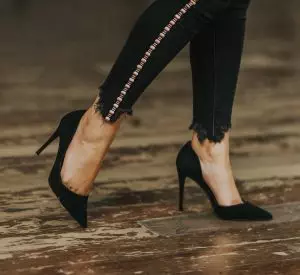
Morton’s Neuroma occurs due to compression of the nerve in the foot that carries sensory signals from the toes. Some people may be more prone to developing Morton’s Neuroma due to the shape of their foot, such as having an unusually high arch, or a very flat foot.
The way that the foot hits the ground and leaves the ground while walking or running can cause a lot of impact and stress to the ball of the foot. An injury to the foot or toes, or other type of trauma, can trigger this nerve condition, as can repetitive stress from a particular sport or other activity. Wearing high heels, flip-flops, or shoes that pinch the toes together can be a factor.
Morton’s Neuroma Treatment
A foot specialist, or podiatrist, will diagnose Morton’s Neuroma by feeling the ball of the foot to see if there is a noticeable mass and to sense what the pain and tingling symptoms are like for the patient. An ultrasound or MRI can show a soft tissue mass like a neuroma, and may be used to confirm the diagnosis.
Usually the first recommendations for a person with Morton’s Neuroma will be to change their footwear: choosing roomier shoes and softer, padded socks, etc. Orthotic supports may be prescribed.
Steroid injections may be used to relieve pain and swelling. If these measures do not help, surgery for Morton’s Neuroma can either be to cut ligaments and other nearby tissues to try to relieve pressure, or in some cases, the affected nerve itself may be removed (neurectomy). This can relieve pain; it can also reduce sensation in the foot permanently. There is also a chance with some surgeries that the neuroma may simply grow again.
Neuromas do not generally go away on their own. The most conservative treatment options for Morton’s Neuroma—like rest, icing, and different shoes—may or may not help to relieve the pain and tingling. Fortunately, acupuncture treatment is an excellent way to help relieve nerve pain.
Can Acupuncture Help Morton’s Neuroma Foot Pain?
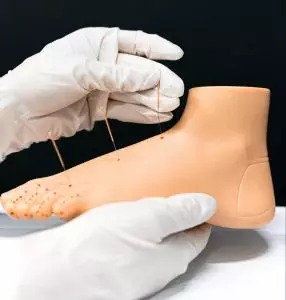
Inflammation and compression around nerves can cause nerve pain in many different parts of the body. For example, pinched or compressed nerves in the spine, or a herniated disc, can cause sciatica or piriformis syndrome: hip pain or pain that radiates down the leg. Compression of the plantar nerve can cause heel pain. A pinched nerve in the neck can cause shoulder pain and/or neck pain. Impingement of the median nerve causes carpal tunnel syndrome. An inflamed trigeminal nerve causes pain in the face. With acupuncture, we are able to provide treatments that can help relieve all of these types of nerve pain.
Acupuncture and other Chinese medicine modalities can help to reduce inflammation that presses on nerves, release scar tissue, and help to heal nerves and the irritated soft tissues surrounding them, like ligaments and muscles. Acupuncture also acts as an analgesic, reducing pain and increasing endorphins.
Evidence suggests that the stimulation of acupuncture points encourages the pituitary gland to release more cortisol, which plays an important role in reducing inflammation. It has been hypothesized that acupuncture influences the release of neuropeptides from nerve endings, which is also a key part of the inflammatory response.
According to TCM theory, this type of pain is often considered to arise due to “Bi Syndrome” conditions, in which stagnation of Qi and blood causes stiffness. The blockage of energy usually occurs due to pathogenic forces of “wind,” “cold,” or “dampness,” or some combination of these factors. Thus, the acupuncture practitioner will choose from a variety of methods including acupuncture, herbal supplements, moxibustion, and Tuina massage to clear obstructions that lead to pain and numbness, such as with Morton’s Neuroma.
Acupuncture Near Me for Morton’s Neuroma, Los Angeles Area
There are many different conditions that can cause foot pain and toe pain. It is important to seek care for foot problems promptly, so that they do not become worse. Acupuncture and other TCM treatments can help improve and maintain foot health for everyone, and can help manage and relieve many types of injury or disorders that affect the feet. At Art of Wellness near Santa Monica, we have 30 years of experience helping people stay active and on their toes.
*This article is for education from the perspective of Traditional Chinese Medicine only. The education provided by this article is not approved by FDA to diagnose, prevent, treat and cure human diseases. It should not stop you from consulting with your physician for your medical conditions. Traditional Chinese Medicine is based on Qi, which is an invisible force that usually cannot be observed by modern science. Because science focuses on testing ideas about the natural world with evidence obtained through observation, these aspects of acupuncture can’t be studied by science. Therefore acupuncture and Chinese herbs are often not supported by double-blind, randomized trials, and they are considered alternative medicine therapies in the United States.
How to Detox With Acupuncture and TCM
By Xiaomei Cai, L.Ac., Ph.D. & Qineng Tan, L.Ac., Ph.D.
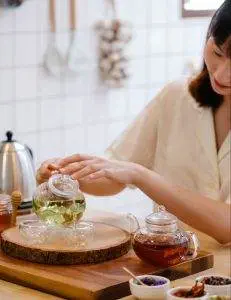
Why is it important to do a detox or body cleanse periodically? When done with the right support from an acupuncturist near me, detoxing can help improve your digestion, immune function, fertility, and many other aspects of your health. Store bought colon cleanse products or a juice cleanse won’t really do the job, though. A detox program with acupuncture and Chinese herbs will do more to optimize your health than just a detox diet will.
When we recommend our Detox Program at Art of Wellness, we are not talking about fasting or detox drinks, like a master cleanse. The goal of our program is to detoxify the organ systems of the body: it’s a liver detox, kidney cleanse, lungs, heart, and spleen. This is a full body cleanse designed to give you a health reset. According to TCM philosophy, your body knows how to repair and renew itself, but it cannot do this job when it is congested and out of balance.
In TCM, we have a broad concept of what “toxins” are and how they can affect our bodies and our health. Toxic chemicals that come from our environment, such as food additives, pesticides, cleaning products, and beauty and hygiene products are certainly part of the problem. Drugs, medicines, alcohol, and unhealthy foods can also be toxic. So can behavioral habits, like sitting and looking at our screens and devices too long.
But our own bodies produce toxins, too. The waste products our organs create are “toxic,” and if they are held in the body too long without being adequately cleared out, they can negatively impact organ function. Imbalances in the system can cause conditions of excess heat or phlegm, which can lead to all kinds of problems with both your physical and mental health.
Stress, lack of sleep, and extreme emotions can also contribute to toxic conditions in the body and mind. When the organ systems are out of balance, the body is under constant pressure to keep functioning, but we do not feel our best.
Signs you need to detox include:
- Fatigue, low energy, tired all the time
- Foggy head, memory problems, trouble concentrating
- Constipation
- Trouble sleeping, insomnia
- Weight gain
- Hair loss
- Hormone imbalances
- Signs of rapid aging
- Skin rash, acne
- Fingernails are brittle, lined or ridged
- Severe PMS symptoms or menopause symptoms
- Headaches, migraine
- Water retention, edema, swelling in extremities
Inflammation is largely created by toxic conditions in the body, and most pain conditions and chronic illnesses stem, at least in part, from inflammation somewhere.
Why You Need a Liver Detox
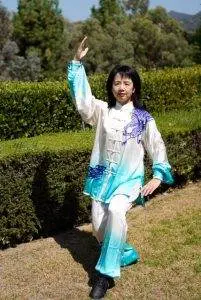
In conventional medicine, we think of the liver as being a sort of filter that removes toxins from the blood and helps metabolize fat. In TCM theory, we consider the liver to be the storehouse and distributor of blood; therefore, it also plays a crucial role in the menstrual cycle. The liver is also strongly connected to a person’s emotional life.
Stress, lack of sleep, too much sugar, alcohol, fatty, fried foods, pharmaceutical medicines, and recreational drugs all tax the liver above and beyond what it needs to do just to keep the blood flowing to nourish the body. When too many demands are placed on the liver, it can cause all kinds of symptoms, including: fatigue, insomnia, and headaches. Feelings of anger, frustration, anxiety, and irritability may arise. Conversely, when a person is feeling bitter and resentful, and isn’t able to express it, those unresolved emotions may begin to cause trouble with liver function.
Just as the liver governs the blood, in TCM, the kidneys govern the water of the body, controlling elimination through the bladder, and maintaining blood pressure by keeping the right amount of water in the bloodstream. Signs that the kidneys are not balanced include: problems with blood pressure, edema, puffiness in the face or extremities, UTIs, chronic fatigue, and menopause symptoms, like dryness and hot flashes.
Detoxing the organ systems, including the liver and kidneys especially, can help rejuvenate the digestion and allow better nutrition to reach all parts of the body, as the quality and flow of blood and other bodily fluids will be improved.
Making sure that your excretory system is in good working order before starting a cleanse is important. If you are already having problems with constipation, for example, we will want to make sure we get things moving before we start cleansing the organs. Our detox also focuses on the body’s largest excretory organ: the skin.
Top 10 Reasons To Detox
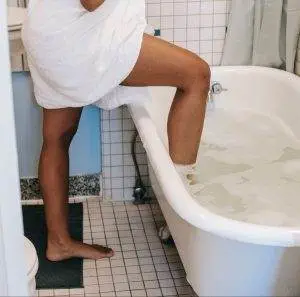
It is a good idea for everyone to detox periodically; detoxing every six months is reasonable for most people. Sometimes we will specifically recommend a detox for a patient when they are struggling with a particular health problem, or if they are planning a pregnancy.
Detoxing can help:
- Boost Immunity – a cleanse will help get your lymphatic system, which produces and transports immune cells and removes waste from cells, moving, improving the efficacy of your immune system.
- Break Free From Addiction – if you are ready, a commitment to the detox program and food plan can help you end patterns of substance abuse, drug use, alcohol addiction, smoking, and other types of dependency.
- Infertility – We often advise people who come to Art of Wellness for fertility treatment to begin with the Detox Program. Not only will this help increase the chances of conception occurring, whether naturally or with the aid of ART, but it will also lay the foundation for your child’s health in the future.
- Improve sleep – This works both ways. In order for the body to do its routine daily work of removing toxic waste, it needs plenty of sleep. The Liver, in particular, is working hard through the night to clean and deliver fresh blood to the cells. Sleeping on your side enhances your body’s ability to do this work, allowing the internal organs to drain properly. When your body is functioning well, your sleep will be of better quality, more restful and refreshing.
- Improve skin and hair – Dull eyes and skin, dark circles or bags, puffiness, and thinning hair are signs of stagnant blood and Qi. Nutrients from the right foods and Chinese herbs help to nourish the skin, and clear heat, dampness, and dryness. When old cells are removed, hair and eyes can shine again. Acupuncture treatment can help stimulate collagen production, which also happens while you sleep.
- Weight loss – While our acupuncture detox is not about how to lose belly fat fast, many people will find that it gives them a good foundation for new eating habits. Detoxing the liver and kidneys will help your body metabolize fat better.
- Balance hormones – severe PMS symptoms, bloated stomach and mood swings, perimenopause symptoms, infertility in women and infertility in men (oligospermia) can all be improved when hormone function improves. Acupuncture treatment can also help relieve conditions like PCOS, fibroids/leiomyoma, and endometriosis for women, and BPH in men.
- Reduce inflammation – many illnesses and pain conditions are inflammatory in nature. If you are suffering from pain due to plantar fasciitis, gout, rheumatoid arthritis, tennis elbow, carpal tunnel syndrome, shoulder or hip pain, acupuncture can help.
- Increased energy – better nutrition, better circulation, better sleep, and better organ function will all work synergistically to help you feel more energetic.
- Chronic illness – many chronic illnesses are rooted in toxic conditions within the body or exposure to toxins. Hard-to-treat conditions like autoimmune conditions and other systemic problems may be helped with alternative medicine when conventional medical treatments have not been successful. We treat many conditions with acupuncture and herbs, such as: lupus, lyme disease, celiac disease, fibromyalgia, and Crohn’s disease. We also provide support for people going through cancer treatment.
7 Steps of Detox Program With TCM Acupuncture and Herbs
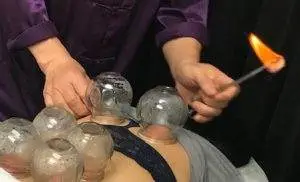
Pain and dysfunction occur when there is imbalance and when there are areas of stagnation within the body. Think of the metaphor of a house that needs to be deep-cleaned; there are dark corners of the body that have been ignored for a while, where dust and cobwebs have gathered. The Detox program reaches into these pockets of stagnation, sweeps them clean, and makes sure they get some fresh air and sunlight shining on them, in the form of invigorated Qi and blood.
- Acupuncture Treatments – the primary goal of acupuncture treatments during the detox phase is to get Qi moving freely, remove blockages, and to assist in elimination of toxins from the body.
- Cupping Treatment – the TCM modality of cupping creates a vacuum-like suction that moves Qi and blood from the innermost parts of the body outwards. During the detox program, cupping helps to pull toxins out of the lungs and other organs.
- Detox Herbs – the Chinese herb detox tea helps to clear heat and toxins from the body and improve digestion and elimination.
- Foot Pad Detox – detox foot patches, worn as you sleep at night and removed in the morning, help to pull toxins and fatty deposits from the body.
- Detox Bath – Sweating is an excellent way to remove toxins through the skin; this is why so many traditions rely on saunas and hot baths. Our herbal sachets allow you to enjoy a therapeutic herbal soak in your own bathtub.
- Exercise – Your acupuncturist will instruct you on how to practice daily exercises, based on QiGong movements, that will help to get Qi and blood moving.
- Nutrition – the food plan during the detox is based on whole grains, lean proteins, and plenty of vegetables, flooding your system with nutrients.
Detox Near Me Los Angeles, Westside
The beginning of the year, springtime, after recovery from a long illness, while preparing for a healthy pregnancy–anytime may be the right time for you to detoxify your system and get a fresh start. We recommend that you take the time to dedicate yourself to a week of cleansing with the Art of Wellness Detox Program at least twice a year for optimal health benefits.
*This article is for education from the perspective of Traditional Chinese Medicine only. The education provided by this article is not approved by FDA to diagnose, prevent, treat and cure human diseases. It should not stop you from consulting with your physician for your medical conditions. Traditional Chinese Medicine is based on Qi, which is an invisible force that usually cannot be observed by modern science. Because science focuses on testing ideas about the natural world with evidence obtained through observation, these aspects of acupuncture can’t be studied by science. Therefore acupuncture and Chinese herbs are often not supported by double-blind, randomized trials, and they are considered alternative medicine therapies in the United States.
